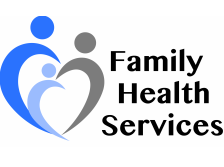Diabetes News – September 2020
September is National Cholesterol Education Month
Cholesterol is a waxy, fat-like substance found in your body and many foods. Your body needs cholesterol to function normally and makes all that you need. Too much cholesterol can build up in your arteries. After a while, these deposits narrow your arteries, putting you at risk for heart disease and stroke.
Diabetes tends to lower “good” cholesterol levels and raise triglyceride and “bad” cholesterol levels, which increases the risk for heart disease and stroke. This common condition is called diabetic dyslipidemia. Diabetic dyslipidemia means your lipid profile is going in the wrong direction. It’s a deadly combination that puts patients at risk for premature coronary heart disease and atherosclerosis. Studies show a link between insulin resistance, which is a precursor to type 2 diabetes, and diabetic dyslipidemia, atherosclerosis and blood vessel disease. These conditions can develop even before diabetes is diagnosed.
High cholesterol usually doesn’t have any symptoms. As a result, many people do not know that their cholesterol levels are too high. However, doctors can do a simple blood test to check your cholesterol. High cholesterol can be controlled through lifestyle changes or if it is not enough, through medications.
Lifestyle changes that can help lower cholesterol are:
- Low-fat and high-fiber food (Eat more fresh fruits, fresh vegetables, and whole grains).
- Maintain a healthy weight.
- Don’t smoke or quit if you smoke.
- For adults, getting at least 2 hours and 30 minutes of moderate or 1 hour and 15 minutes of vigorous physical activity a week. For those aged 6-17, getting 1 hour or more of physical activity each day.
Speaking of physical activity, how about walking a mile to help bring awareness to older adult falls. Falls Prevention Awareness Week, September 21-25, 2020. The Stand Steady Coalition and the Erie County Health Department initiative asks all of Erie County to help take “10 Million Steps to Prevent Falls” throughout the month of September.
As part of the Stand Steady Coalition, we invite you to participate in a VIRTUAL fall prevention walk during September, 21st through September, 25th, 2020. Your virtual pledge to walk 1 mile will bring awareness to the prevention of falls among older adults.
Falling is NOT a normal part of aging. Increased physical activity, like walking several times a week, is one strategy to lower the risk. “10 Million Steps to Prevent Falls” partners organize community walking groups and events on or around the first day of FALL to spread the word that simple changes can make a big difference. This year we decided to only offer the pledge to walk 1 mile and maintain the safety of our community.
You can make your pledge to walk here: https://mailchi.mp/f8d9c3779cfa/national-fall-prevention-awareness-pledge
Football, falling leaves and spice treats everywhere. Treat yourself to a comforting reward (after that walk!) that is not only tasty, but takes less than 5 minutes to enjoy!
Cinnamon Roll Smoothie
Ingredients
- 1cup vanilla almond milk
- 1/2cup vanilla Greek yogurt
- 1/4cup old fashioned oats
- 1Tablespoon brown sugar
- 1/4teaspoon cinnamon
- 1frozen banana (or fresh banana, but add in 3-4 ice cubes with fresh banana)
Instructions
- Place all ingredients in a blender and blend until smooth. ENJOY!
Community offerings: *
* Many community offering have been postponed, changed or canceled as a result of the coronavirus/COVID 19. Please call the number listed for the event to verify availability, dates and times.
If you have questions regarding Coronavirus/COVID-19 please call 1-833-4-ASK-ODH (1-833-427-5634)
Or, go to https://www.cdc.gov/coronavirus/2019-nCoV/index.html or https://coronavirus.ohio.gov/wps/portal/gov/covid-19/.
Diabetes Empowerment Education Program (DEEP) –Erie County Senior Center
COST:
Free
CONTACT:
Tina Elmlinger
419-624-1856
The Diabetes Empowerment Education Program [DEEP] is offered every Wednesday for six weeks. Good attendance is important. This free program is for diabetics, pre-diabetics, and spouses or caregivers of a diabetic. Residents of Erie County, aged 60 or older, please call 419-624-1856 to register.
Diabetes Support Group – Firelands Regional Medical Center
The Diabetes Support Group presented by Jean Feick CNP,CDE, meets the third Wednesday of each month Sept–November and January-May from 12:00pm –1:00pm. This meeting is free to the public and no registration is required. Attendees are welcome to purchase lunch in the hospital cafeteria and come to the adjacent Cafeteria Meeting #1. A different topic will be reviewed each month. If you have questions, please contact the Diabetes Education Department at 419-557-6992.
HEALTH & WELLNESS SCREENING – offered by Firelands Regional Medical Center
You must Pre-register for all Lab Work at 419-557-7840.
Sandusky Health & Wellness Screening
Firelands Main Campus
1111 Hayes Ave
Sandusky, OH
Saturday, September 12
7:00 AM – 9:30 AM
Castalia Health & Wellness Screening
Drs. Kuns
101 So. Washington Street
Castalia, OH
Saturday, October 17
7:30 AM – 9:30 AM
Port Clinton Health & Wellness Screening
Drs. Braniecki and Widmer
3960 East Harbor Road
Port Clinton, OH
Saturday, November 7
7:30 AM – 9:30 AM
Health & Wellness Screenings include:
- Complete Blood Count with Metabolic & Lipid Panel (No Eating or Drinking for 12 Hours – Water Allowed – includes liver and kidney function studies, fasting blood sugar, thyroid, cholesterol, HDL/LDL and triglyceride levels along with a complete blood count.) – $45;
- Hemoglobin A1C (A three month report card on how well your blood sugars have been running. A test used to diagnose diabetes and/or to evaluate how well your treatment plan is working.) – $25;
- PSA (Prostate Specific Antigen)- $30;
- Vitamin D – $35;
- TSH – $25
Diet and exercise are an essential part of diabetes management, so is routine testing.
The A1C test—also known as the hemoglobin A1C or HbA1c test—is a simple blood test that measures your average blood sugar levels over the past 3 months. It’s one of the commonly used tests to diagnose prediabetes and diabetes, and is also the main test to help you and your health care team manage your diabetes. Higher A1C levels are linked to diabetes complications, so reaching and maintaining your individual A1C goal is really important if you have diabetes.
Last quarter, 71% of our diabetic patients had an A1C of less than 9%. Talk with your provider to discuss the right options for you.



